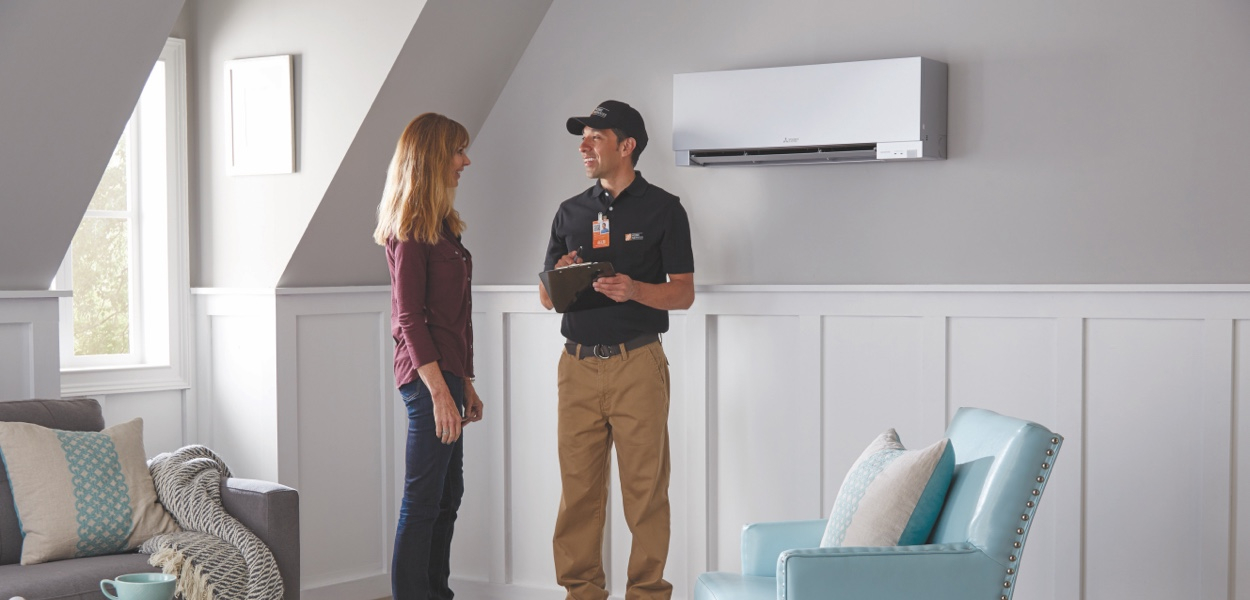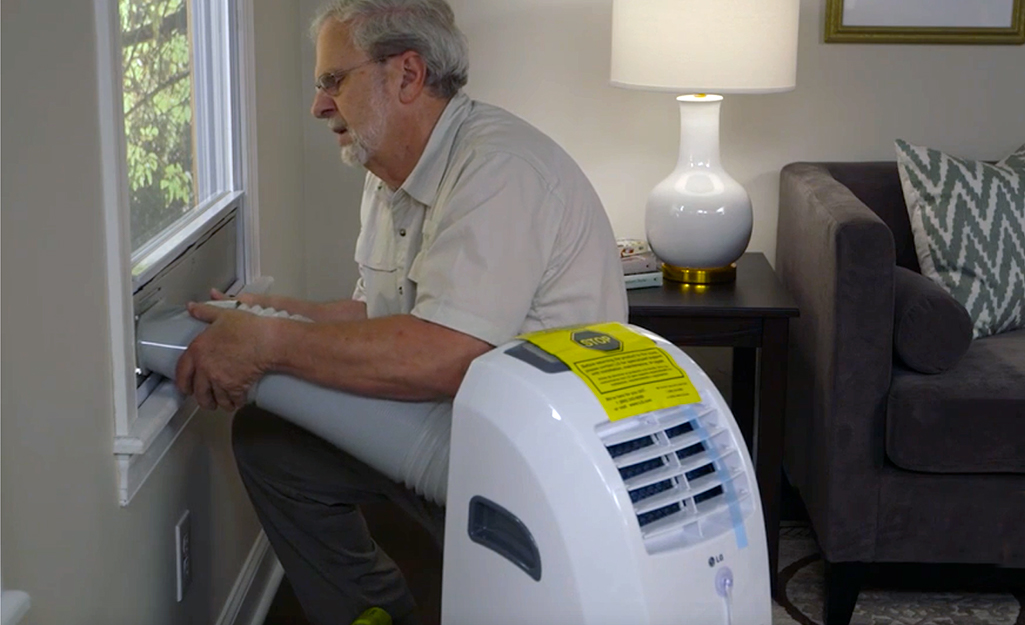Does Home Depot Install Air Conditioners

The question of whether Home Depot installs air conditioners is a common one, particularly for homeowners looking for convenient and potentially cost-effective solutions. The short answer is: yes, Home Depot does offer air conditioner installation services. However, understanding the scope of these services, the installation process, and the implications for HVAC professionals is crucial for both consumers and industry insiders.
Home Depot's Air Conditioner Installation Services: A Closer Look
Home Depot partners with licensed, third-party contractors to provide installation services for a range of air conditioning systems, including central air conditioning units, window units, and ductless mini-splits. The process typically involves:
- Free In-Home Consultation: A local contractor assesses the home's cooling needs, existing ductwork (if applicable), and electrical capacity.
- System Selection: Based on the assessment, the contractor recommends suitable air conditioning units available at Home Depot.
- Installation: The contractor handles the installation, including connecting the unit to the electrical system, refrigerant lines, and ductwork.
- Post-Installation Inspection: The contractor ensures the system is functioning correctly and provides instructions on operation and maintenance.
While Home Depot facilitates the connection between consumers and HVAC installers, they are not directly employing technicians. This has several implications for HVAC professionals and the broader industry.
Implications for HVAC Professionals
The partnership between Home Depot and HVAC contractors presents both opportunities and challenges for professionals in the field.
Opportunities:
- Lead Generation: Contractors gain access to a large pool of potential customers through Home Depot's marketing and customer base. This can be particularly beneficial for smaller HVAC businesses or those looking to expand their service area.
- Streamlined Sales Process: Home Depot handles the initial customer inquiry and often the financing, reducing the administrative burden on contractors.
- Increased Brand Visibility: Affiliating with a well-known brand like Home Depot can enhance a contractor's reputation and credibility.
Challenges:
- Margin Compression: Home Depot typically takes a percentage of the installation fee, potentially reducing the contractor's profit margin. Contractors must carefully consider their pricing to ensure profitability.
- Dependence on Home Depot: Relying heavily on Home Depot for leads can make contractors vulnerable to changes in the partnership agreement or Home Depot's business strategy.
- Quality Control: While Home Depot vets its contractors, maintaining consistent quality control across a network of independent businesses can be challenging. Consumers may experience varying levels of service depending on the contractor assigned to their project.
The HVAC Industry Landscape: Job Outlook and Salaries
Despite the presence of large retailers like Home Depot offering installation services, the demand for skilled HVAC technicians remains strong. The U.S. Bureau of Labor Statistics projects a 6 percent growth in employment for HVAC mechanics and installers from 2022 to 2032, about as fast as the average for all occupations. This growth is driven by factors such as:
- New Construction: Continued construction of residential and commercial buildings creates demand for HVAC systems and installation services.
- Replacement and Upgrades: Existing HVAC systems require regular maintenance, repairs, and eventual replacement, generating ongoing demand for technicians.
- Energy Efficiency Standards: Increasing focus on energy efficiency and stricter regulations are driving demand for newer, more efficient HVAC systems, requiring skilled technicians for installation and maintenance.
- Growing Population: Population growth in certain regions is increasing the demand for cooling and heating services.
Salary Ranges:
According to the Bureau of Labor Statistics, the median annual wage for HVAC mechanics and installers was $59,620 in May 2023. The lowest 10 percent earned less than $37,870, and the highest 10 percent earned more than $88,490. Salaries can vary based on experience, location, certifications, and the type of employer.
For example, a entry-level HVAC technician might earn around $35,000 - $45,000 per year, while an experienced technician with specialized certifications and management responsibilities could earn upwards of $70,000 - $90,000 or more.
The Importance of Certifications
In the HVAC industry, certifications demonstrate competency, enhance credibility, and often lead to higher earning potential. Key certifications include:
- EPA Section 608 Certification: Required by the Environmental Protection Agency (EPA) for technicians who handle refrigerants. This certification ensures technicians understand proper refrigerant handling procedures to prevent ozone depletion. Different types of 608 certifications exist (Type I, Type II, Type III, and Universal), depending on the type of equipment the technician services.
- NATE Certification: North American Technician Excellence (NATE) certification is a widely recognized industry standard that demonstrates a technician's knowledge and skills in specific areas of HVAC, such as installation, service, and efficiency. NATE offers various certification specialties.
- HVAC Excellence Certification: Another highly respected certification program that validates technical skills and knowledge in various HVAC disciplines.
- State and Local Licensing: Many states and municipalities require HVAC contractors to be licensed. Licensing requirements vary by location and typically involve passing an exam and demonstrating relevant experience.
Investing in certifications is highly recommended for HVAC professionals looking to advance their careers. Certifications can lead to better job opportunities, higher salaries, and increased customer confidence.
Career Paths in HVAC
The HVAC industry offers a diverse range of career paths, from entry-level technician positions to specialized roles and management opportunities. Some common career paths include:
- HVAC Installer: Installs new heating, ventilation, and air conditioning systems in residential and commercial buildings.
- HVAC Service Technician: Diagnoses and repairs malfunctioning HVAC systems, performs routine maintenance, and ensures systems are operating efficiently.
- HVAC Sales Engineer: Works with clients to design and specify HVAC systems for new construction or renovation projects. Requires strong technical knowledge and sales skills.
- HVAC Project Manager: Oversees the installation and commissioning of HVAC systems, ensuring projects are completed on time and within budget.
- HVAC Estimator: Prepares cost estimates for HVAC projects, considering materials, labor, and other expenses.
- HVAC Instructor: Teaches HVAC courses at vocational schools, community colleges, or technical training centers.
- HVAC Business Owner/Contractor: Starts and manages their own HVAC business, providing installation, service, and repair services to residential and commercial clients.
Real-World Example:
Consider Sarah Johnson, who started her career as an HVAC apprentice after graduating from a vocational school. She obtained her EPA 608 certification and worked as an installer for several years. She then pursued NATE certification in service and repair, which allowed her to transition into a service technician role. After gaining experience in the field, Sarah eventually became a service manager, overseeing a team of technicians and managing service contracts. Now, after ten years in the industry, she’s working on starting her own HVAC contracting business.
Alternative Options and Considerations
While Home Depot offers installation services, it's important to consider other options and factors before making a decision:
- Local HVAC Contractors: Working with a local HVAC contractor directly can offer more personalized service, greater flexibility, and potentially better pricing. Local contractors often have a deeper understanding of the specific cooling and heating needs of the community.
- Independent Research: Take the time to research different HVAC systems and brands to find the best fit for your home and budget. Compare quotes from multiple contractors and consider factors such as energy efficiency, warranty coverage, and customer reviews.
- Financing Options: Explore financing options from different sources, including Home Depot, local contractors, and financial institutions. Compare interest rates, terms, and fees to find the most affordable option.
Conclusion
Home Depot provides a convenient option for air conditioner installation by connecting customers with local contractors. This can be beneficial for both consumers and HVAC businesses, offering opportunities for lead generation and streamlined sales processes. However, HVAC professionals should be aware of the potential challenges, such as margin compression and dependence on Home Depot. Regardless of the installation channel, the demand for skilled HVAC technicians remains strong, driven by factors such as new construction, replacement of existing systems, and increasing energy efficiency standards. Investing in certifications, such as EPA 608 and NATE, is crucial for career advancement and earning potential in this dynamic and essential industry. For consumers, considering the pros and cons of Home Depot's service versus working with independent contractors is key to finding the best HVAC solution for their needs.










